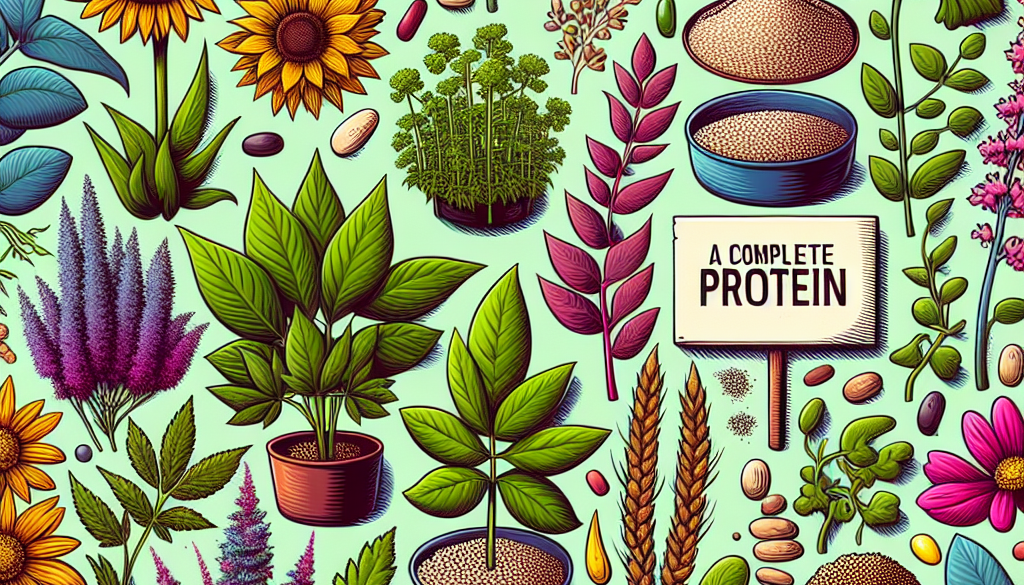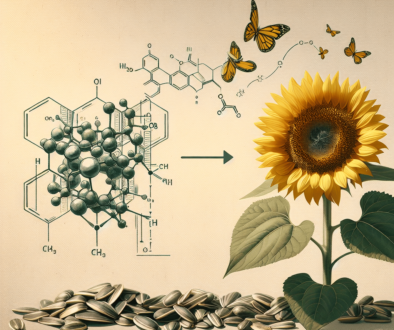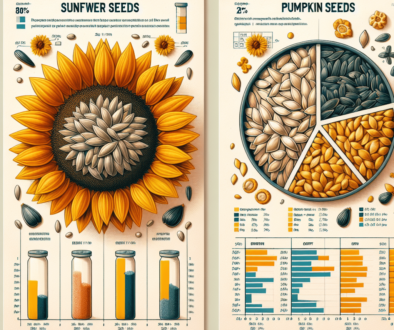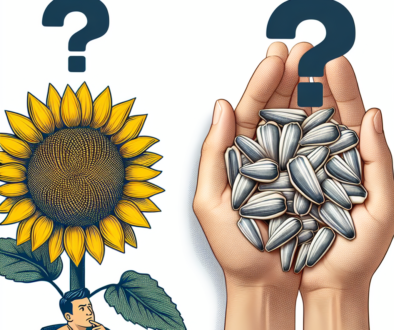Are There Any Plants That Are A Complete Protein?
-
Table of Contents
- Complete Protein Plants: A Comprehensive Guide
- Understanding Complete Proteins
- Challenges with Plant-Based Proteins
- Plants That Are Complete Proteins
- Benefits of Plant-Based Complete Proteins
- Case Studies and Statistics
- Combining Plant Proteins
- Conclusion: Embracing Plant-Based Complete Proteins
- Discover ETprotein’s High-Quality Plant Proteins
Complete Protein Plants: A Comprehensive Guide
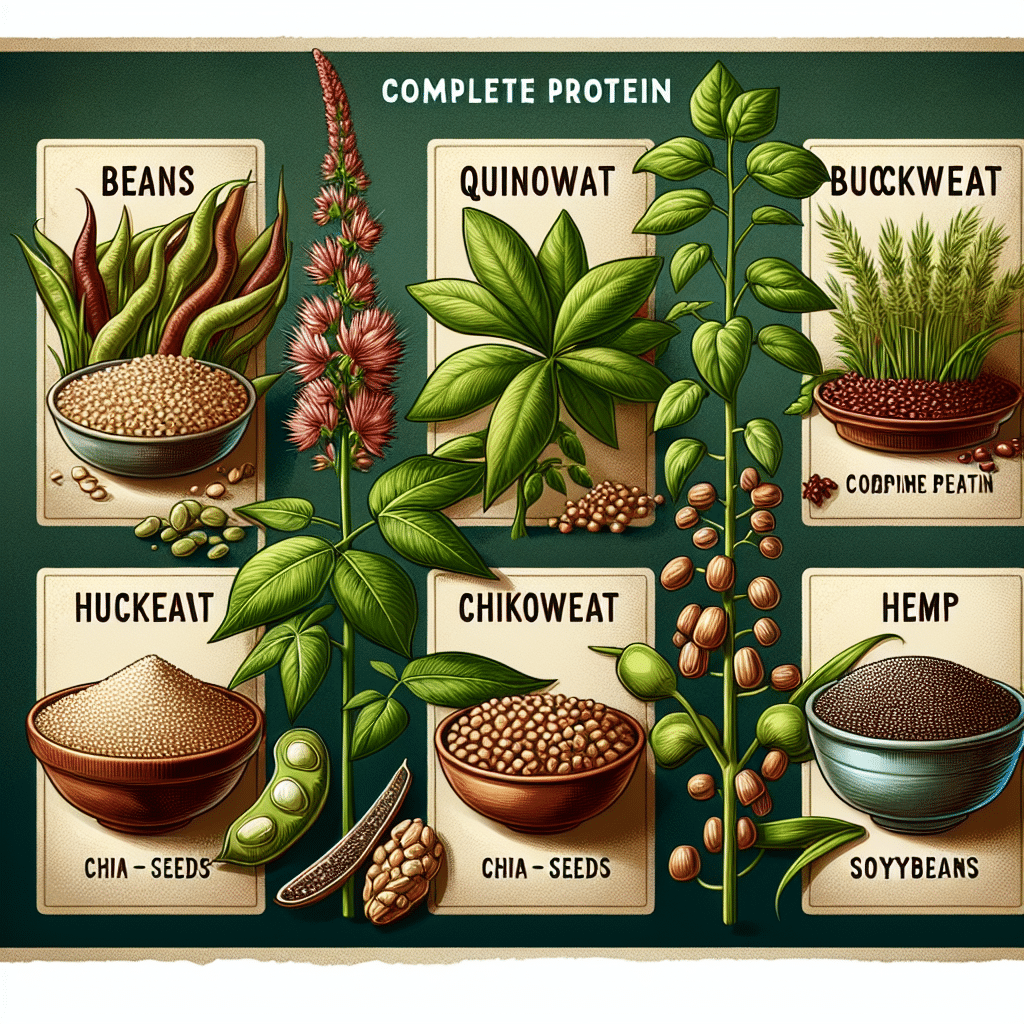
Proteins are essential macronutrients required for the building, maintenance, and repair of tissues in the body. A complete protein refers to a source of protein that contains an adequate proportion of each of the nine essential amino acids necessary in the human diet. While animal products are well-known for being complete protein sources, the question arises: Are there any plants that offer a complete protein?
Understanding Complete Proteins
Before diving into plant-based sources, it’s important to understand what makes a protein “complete.” Proteins are made up of amino acids, some of which the body can synthesize on its own (non-essential amino acids), while others must be obtained from food (essential amino acids). A complete protein contains all nine essential amino acids in sufficient amounts.
Challenges with Plant-Based Proteins
Most plant-based proteins are considered incomplete because they lack one or more essential amino acids. However, this doesn’t mean that vegetarians and vegans can’t get all the amino acids they need. By eating a varied diet and combining different plant proteins, one can obtain a complete amino acid profile.
Plants That Are Complete Proteins
Contrary to popular belief, there are plant sources that are considered complete proteins. Here are some examples:
- Quinoa: Often referred to as a “superfood,” quinoa is a seed that is prepared and eaten similarly to a grain. It is a rare plant food that is complete, containing all nine essential amino acids.
- Soy: Soybeans and soy products like tofu, tempeh, and edamame are all complete proteins. They are versatile ingredients that can be used in a variety of dishes.
- Buckwheat: Despite its name, buckwheat is not related to wheat and is gluten-free. It is another plant that provides all essential amino acids.
- Hemp Seeds: These seeds are not only a complete protein but also a great source of omega-3 and omega-6 fatty acids.
- Chia Seeds: Known for their high fiber content, chia seeds also contain a complete set of essential amino acids.
- Spirulina: This blue-green algae is a complete protein and is also rich in vitamins and minerals.
- Amaranth: Similar to quinoa, amaranth is a pseudocereal that is a complete protein.
Benefits of Plant-Based Complete Proteins
Choosing plant-based complete proteins offers numerous health and environmental benefits. They are often lower in calories and fat than animal proteins, contain no cholesterol, and are high in fiber and other nutrients. Additionally, plant-based diets have a lower carbon footprint, making them a more sustainable choice for the environment.
Case Studies and Statistics
Research has shown that plant-based diets can be nutritionally adequate and may provide health benefits in the prevention and treatment of certain diseases. For example, a study published in the American Journal of Clinical Nutrition found that soy protein can lower cholesterol levels, potentially reducing the risk of heart disease.
Statistics also indicate a growing trend towards plant-based eating. According to a report by the Plant Based Foods Association, U.S. retail sales of plant-based foods have significantly outpaced total food sales, indicating a shift in consumer habits towards foods that are perceived as healthier and more sustainable.
Combining Plant Proteins
For those plant proteins that are not complete, it’s important to understand the concept of protein complementation. This involves combining different plant-based protein sources that, when eaten together, provide all the essential amino acids. Examples include rice and beans, hummus and pita bread, or peanut butter on whole wheat bread.
Conclusion: Embracing Plant-Based Complete Proteins
In conclusion, while many plant proteins are incomplete, there are indeed plants that offer a complete protein profile. Incorporating foods like quinoa, soy, buckwheat, hemp seeds, chia seeds, spirulina, and amaranth into your diet can ensure you receive all the essential amino acids necessary for good health. Whether you’re a vegetarian, vegan, or simply looking to reduce your meat intake, these plant-based proteins are nutritious options to consider.
Discover ETprotein’s High-Quality Plant Proteins
If you’re interested in incorporating more plant-based proteins into your diet, ETprotein offers a range of high-quality protein products. Their selection includes organic rice protein, pea protein, and various seed proteins, all characterized by a neutral taste and non-GMO, allergen-free attributes. With purity levels exceeding 98%, ETprotein’s offerings cater to a diverse range of industries and dietary needs.
About ETprotein:
ETprotein, a reputable protein and L-(+)-Ergothioneine (EGT) Chinese factory manufacturer and supplier, is renowned for producing, stocking, exporting, and delivering the highest quality organic bulk vegan proteins and L-(+)-Ergothioneine. They include Organic rice protein, clear rice protein, pea protein, clear pea protein, watermelon seed protein, pumpkin seed protein, sunflower seed protein, mung bean protein, peanut protein, and L-(+)-Ergothioneine EGT Pharmaceutical grade, L-(+)-Ergothioneine EGT food grade, L-(+)-Ergothioneine EGT cosmetic grade, L-(+)-Ergothioneine EGT reference grade and L-(+)-Ergothioneine EGT standard. Their offerings, characterized by a neutral taste, non-GMO, allergen-free attributes, with L-(+)-Ergothioneine purity over 98%, 99%, cater to a diverse range of industries. They serve nutraceutical, pharmaceutical, cosmeceutical, veterinary, as well as food and beverage finished product distributors, traders, and manufacturers across Europe, USA, Canada, Australia, Thailand, Japan, Korea, Brazil, and Chile, among others.
ETprotein specialization includes exporting and delivering tailor-made protein powder and finished nutritional supplements. Their extensive product range covers sectors like Food and Beverage, Sports Nutrition, Weight Management, Dietary Supplements, Health and Wellness Products, and Infant Formula, ensuring comprehensive solutions to meet all your protein needs.
As a trusted company by leading global food and beverage brands and Fortune 500 companies, ETprotein reinforces China’s reputation in the global arena. For more information or to sample their products, please contact them and email sales(at)ETprotein.com today.

